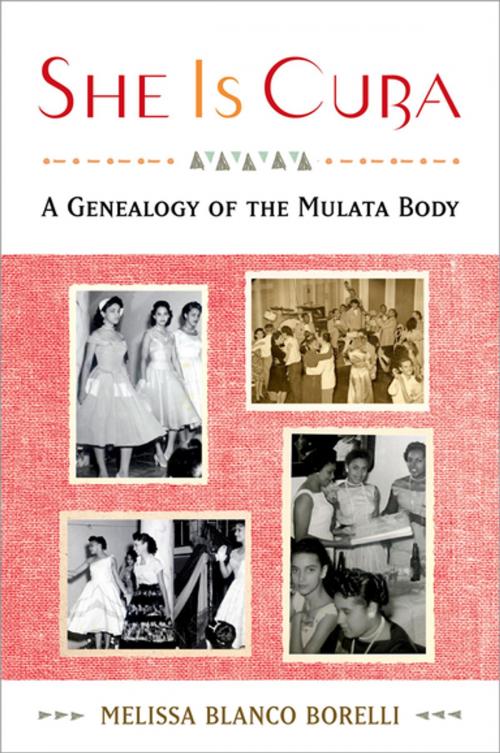She is Cuba
A Genealogy of the Mulata Body
Nonfiction, Entertainment, Performing Arts, Dance, Popular, Music| Author: | Melissa Blanco Borelli | ISBN: | 9780199968190 |
| Publisher: | Oxford University Press | Publication: | November 11, 2015 |
| Imprint: | Oxford University Press | Language: | English |
| Author: | Melissa Blanco Borelli |
| ISBN: | 9780199968190 |
| Publisher: | Oxford University Press |
| Publication: | November 11, 2015 |
| Imprint: | Oxford University Press |
| Language: | English |
She is Cuba: A Genealogy of the Mulata Body traces the history of the Cuban mulata and her association with hips, sensuality and popular dance. It examines how the mulata choreographs her racialised identity through her hips and enacts an embodied theory called hip(g)nosis. By focusing on her living and dancing body in order to flesh out the process of identity formation, this book makes a claim for how subaltern bodies negotiate a cultural identity that continues to mark their bodies on a daily basis. Combining literary and personal narratives with historical and theoretical accounts of Cuban popular dance history, religiosity and culture, this work investigates the power of embodied exchanges: bodies watching, looking, touching and dancing with one another. It sets up a genealogy of how the representations and venerations of the dancing mulata continue to circulate and participate in the volatile political and social economy of contemporary Cuba.
She is Cuba: A Genealogy of the Mulata Body traces the history of the Cuban mulata and her association with hips, sensuality and popular dance. It examines how the mulata choreographs her racialised identity through her hips and enacts an embodied theory called hip(g)nosis. By focusing on her living and dancing body in order to flesh out the process of identity formation, this book makes a claim for how subaltern bodies negotiate a cultural identity that continues to mark their bodies on a daily basis. Combining literary and personal narratives with historical and theoretical accounts of Cuban popular dance history, religiosity and culture, this work investigates the power of embodied exchanges: bodies watching, looking, touching and dancing with one another. It sets up a genealogy of how the representations and venerations of the dancing mulata continue to circulate and participate in the volatile political and social economy of contemporary Cuba.















